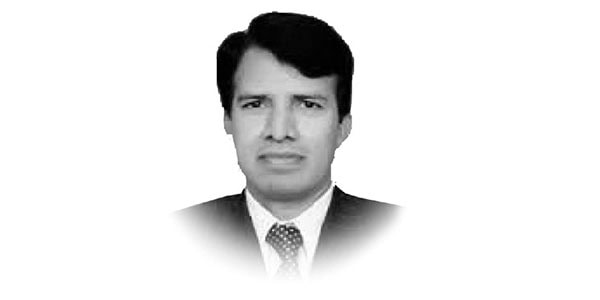Flaws of hereditary politics in Pakistan
THE contemporary Pakistani political system is in a strong control of hereditary politics.The term hereditary political system refers to a system where political positions are transferred or conferred based on inheritance from a parent or grandparent in some form without assessing the capabilities and potentials of the next in line.
Today, the main stream political parties of Pakistan are presenting a very clear picture of hereditary politics with inherent list of flaws.
The biggest drawback of this form of politics is that it does not allow mainstreaming of the political system by limiting its mandate to a restricted and classified class.
It is more or less an extension of the monarchy with the difference of a clear and written nomination of crown prince or political heir.
This form of the politics goes against the true spirit of the governance and the people’s government, which is considered as the essence of democracy.
As defined by political scientists; democracy is the form of government “which is by the people, for the people and from the people”.
Indeed, in the democracy the people are at the helm of affairs and leadership consists of high potential individuals, chosen among the wider social class without any inclusions and exclusions.
The people of the state are part of system and central to the decision making process of the political system.
The further elaboration of democratic values are; freedom of speech, inclusiveness and equality, citizenship, consent of the governed, voting rights, freedom from unwarranted governmental deprivation of the right to life and liberty, and minority rights.
In a hereditary politics, the few families make the decisions for millions who have no options but to follow their directives without their will or wish.
In a way, the millions are nothing more than hostages who even vote for political elites (hereditary politicians) as a decree rather exercising their freedom to choice for a vote.
Whereas, in the hereditary politics the few families have the privileges to rule the state and masses and make decisions which suit them and their associates rather for the larger benefit of state and society, the outcome is; the decomposition of state at three levels; political, economic and social.
In a country like Pakistan the political leaders or ruling elites drive both the society (masses) and the economy.
From the perspective of politics, in Pakistan, the wider and talented youth is politically alienated, limiting the innovations and potentials, needed to re-define, and formulate strategies for the betterment of political process through an all-inclusive nationalistic approach which is the essence of a democratic process and gateway to democracy.
The most undesired outcome of this hereditary politics has been that; the political system of Pakistan and the democracy is what they define rather the literal meanings of these terminologies.
Over the time such a restricted and rotten political system invites agitation against the ruling hereditary elites who are then replaced by other hereditary elite who may end up the same fate; bringing an uncertainty and chaos which destabilize the state, its economy and the society at large.
Through its inborn flaws, this fragile and rotten hereditary political system and so-called democracy ultimately allows the institutions to make their way into the political affair through direct and indirect strategies.
Since these institutions are not well versed with the political system thus, adds on to the existing flaws in the process of bringing corrective measures and reforms.
Resultantly, these institutions are defamed and blamed for engineering the entire political process which otherwise might not have been their prime objective.
Defamation of institutions especially the institution of military is in no way serve the interest of state and society of Pakistan.
Today, Pakistan is facing a situation where hereditary and nasty political system and inept political elites have brought the institutions of security at the centre stage for a criticism by everyone and anyone.
Indeed, this is the main flaw of the hereditary politics in Pakistan which goes against the spirit of; Islam, constitutions of Pakistan, the democratic values and vision of Quaid i Azam, the father of nation.
The political scientists are of the view that, it is easy for the power centres to control hereditary political elites by pointing out their corruptions and wrong doings since they are brought-up in a control environment.
Had it been the mainstreaming of the politics in Pakistan with the involvement of even a common man at the head of a political party, based on potentials and capabilities, perhaps the political system would have flourished with strong democratic and nationalistic foundations and values.
Such a vibrant political system would have strengthened the state on one hand while creating wider harmony among the society with a clear mandate to bring economic development and ensuring sanctity and veracity of the institutions of national security.
As a way forward, let’s debate the flawed hereditary political system of Pakistan at various academic and intellectual forums while analysing its impacts on the domestic and international politics of Pakistan.
As a result of these constrictive academic debates, logical conclusions must be drawn with clear recommendations to parliament for adoption and incorporating them into the constitution of Pakistan and political parties act.
— The writer is Professor of Politics and IR at International Islamic University, Islamabad.










